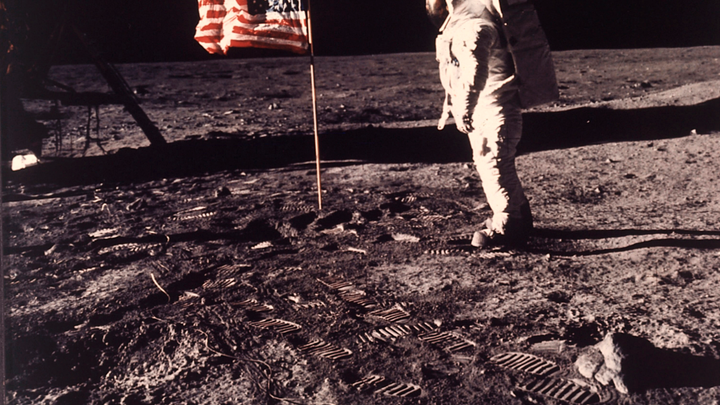7 inventions from the Apollo space program we still use today
From the tiny cameras in our cellphones to the heat-proof uniforms used by firefighters to protect them from the dangers of the job — here are seven famous inventions from the 1960s moon shot.
It’s been nearly 50 years since NASA put a man on the moon but many of the technologies invented for the groundbreaking Apollo space program are still used in our lives on Earth today.
From the tiny cameras in our cellphones to the heat-proof uniforms used by firefighters to protect them from the dangers of the job — here are seven famous inventions from the 1960s moon shot.
The Dustbuster
The Dustbuster was only made possible thanks to Black & Decker’s work with NASA on developing a lightweight and power-efficient tool for the Apollo Lunar Surface Drill. The same motor design used on the 1969 moon landing was then used to create the Dustbuster.
Thermal blankets
The silvery space blanket often worn by marathon runners and emergency patients was also born from the Apollo 11 mission. The lightweight reflective sheet was created by NASA when it needed a material that would insulate astronauts and the spacecraft while taking up little space, according to website Compare The Market.
Advanced cameras
The tiny, highly efficient cameras used in our cellphones and GoPro recorders was made possible by a NASA engineer charged with making a smaller camera for space, according to NASA’s Spinoff magazine. The small CMOS censor made both photos on the moon and our modern-day selfies possible.
Bridge shock absorbers
The shock absorbers found on both San Francisco’s Oakland Bay Bridge and London’s Millennium Bridge were also born out of the Apollo missions. Taylor Devices Inc. created the devices for NASA’s Apollo launchpad and still sell them today as seismic shock absorbers for structures around the world.
Fireproof firefighter uniforms
Fireproof material used in firefighter uniforms was also made possible thanks to the Apollo 11 mission. After a cabin fire killed all three crew on the Apollo 1 mission, NASA developed a suit made of flexible, fireproof fiber that can withstand extreme heat.
Vacuum-sealed food
The vacuum-sealed food that lines our supermarket shelves is another NASA spinoff invented to make sure food in space wouldn’t spoil. Vacuum packaging prevents microorganisms from spreading, ensuring astronauts don’t get sick in space.
Shock-absorbing sneaker soles
Sneaker company Avia also turned to NASA’s suit when wanting to create a shock-absorbing sole that didn’t break down under pressure. Their patented Compression Chamber midsole created in 1990 was invented with help from a NASA Apollo engineer.
This story originally appeared in the New York Post.










































